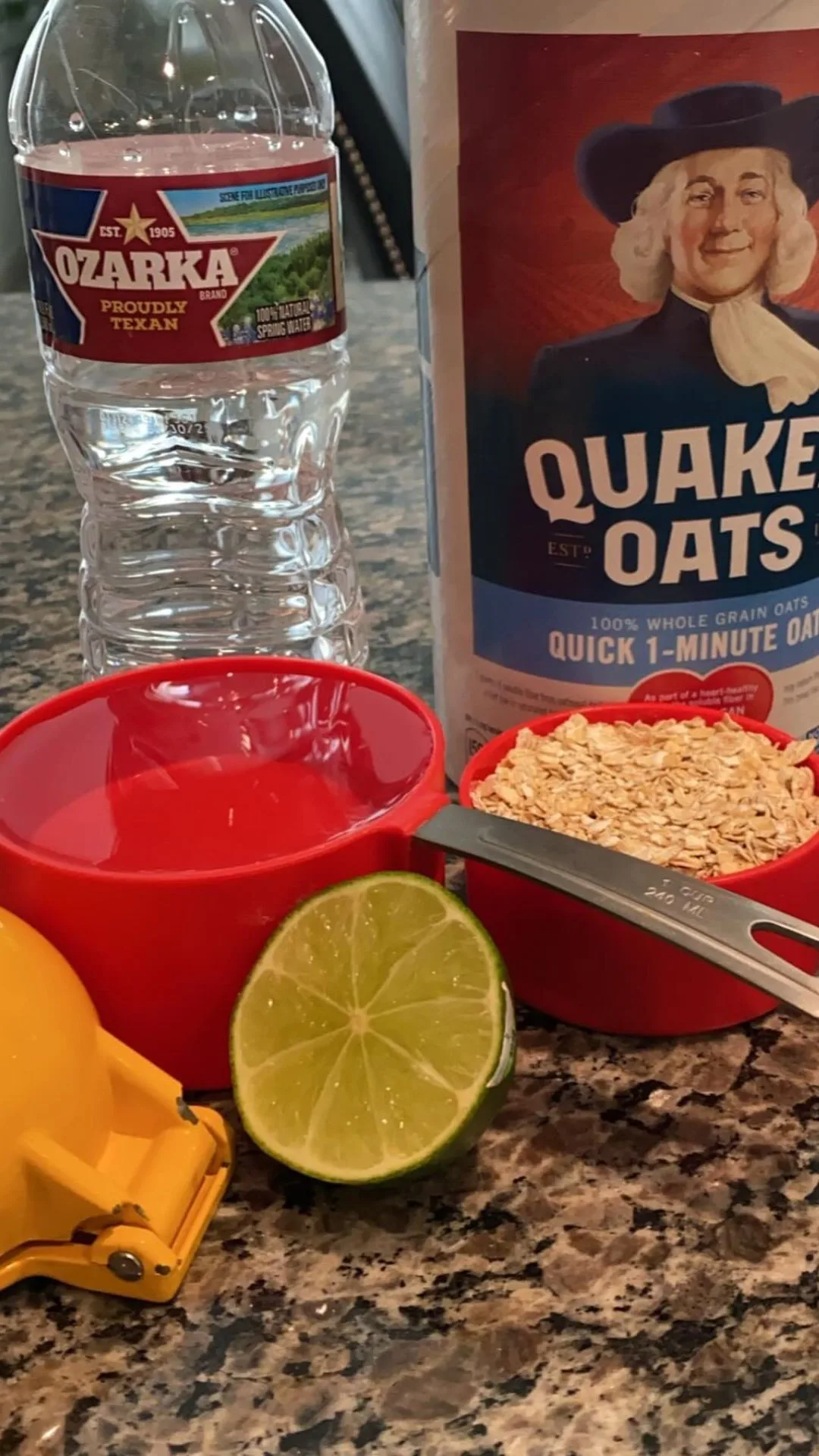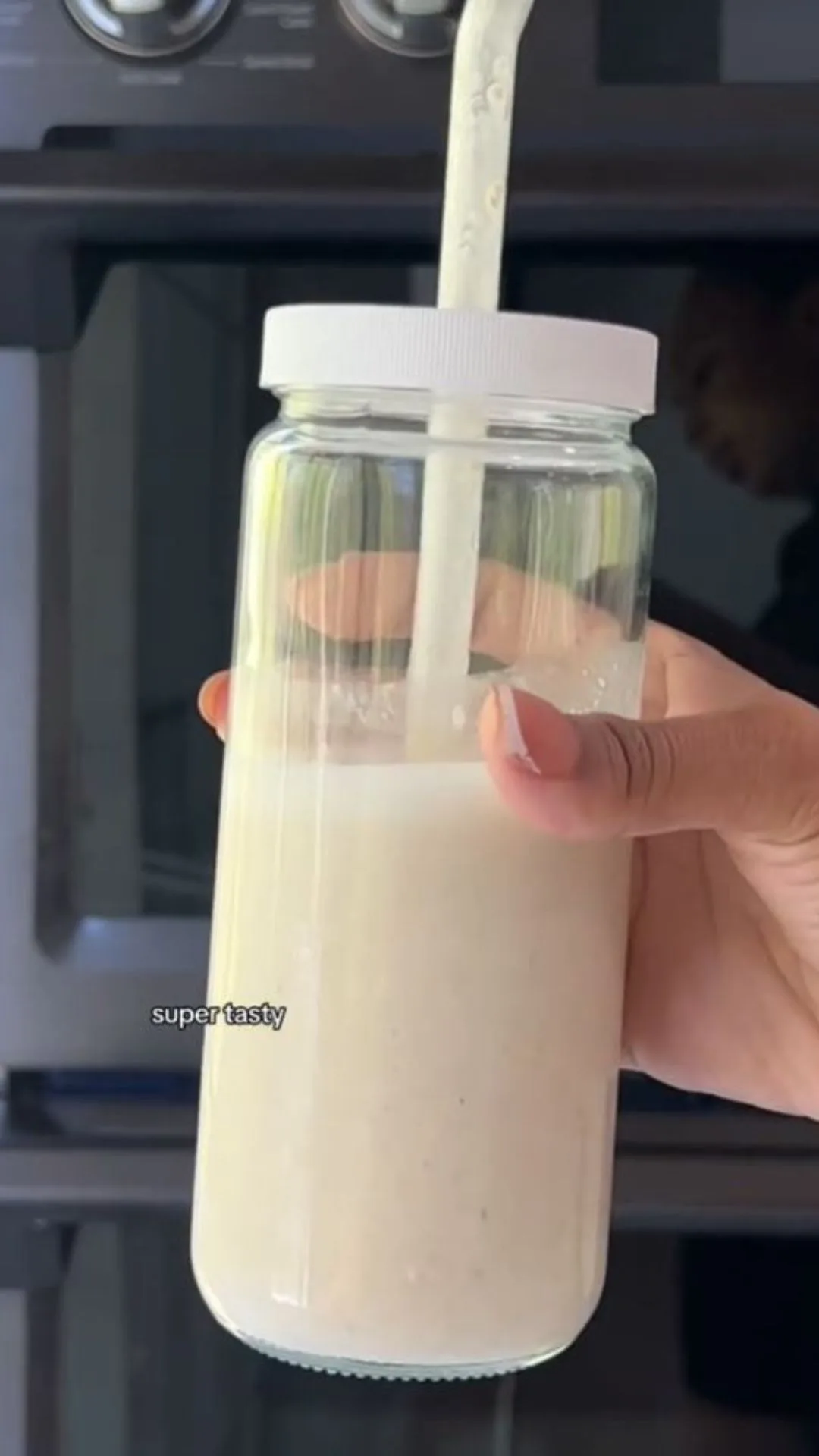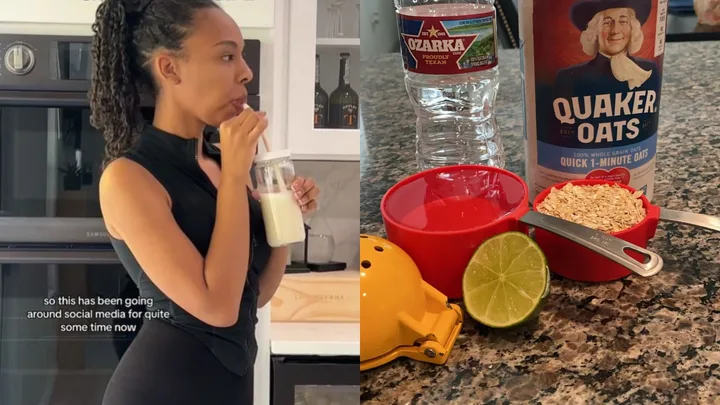You’ve probably heard of diabetes medications being controversially used off-label for the purpose of weight loss, however, TikTok has a new concoction that claims it can assist with fast weight loss too. What are they calling it? ‘Oatzempic’.
Echoing how semaglutide medications allegedly make people feel fuller for longer, this oat drink is supposed to make you feel full to allow for more extreme calorie restriction in other ways.
While social media creators are making all sorts of claims about the drink, we’ve heard from the experts that the so-called ‘Oatzempic challenge’ is just restrictive dieting with a tasteless brew and a glossy name.
What Is ‘Oatzempic’?

‘Oatzempic’ is the viral name for a blended oat drink that people claim helps them feel fuller for longer.
While there’s nothing wrong with the specific ingredients on their own, health experts warn that this trend is no different from other restrictive, nutritionally deficient fad diets that have gone before it.
Wellness app KIC’s co-founder Steph Claire Smith tells marie claire, “Every time I see another quick-fix, fad diet flooding my feed it makes me so furious. Oatzempic is not an innovative weight loss recipe, it’s just restrictive dieting in fancy dress.”
What Is The ‘Oatzempic’ Recipe?
It’s simple. Blend: 1 cup oats, 1 cup water, and ½ lime.
That’s all it takes to make a cup of this TikTok viral sludge. Many online reviewers have commented that it isn’t the most delicious concoction, as it’s essentially citrusy oat milk without the oats removed.
“Oatzempic is a homemade meal replacement oat shake that is comprised of half a cup of oats with a cup of water and some lemon and lime juice. It is, in my opinion when I tried it recently, not that palatable. I found it quite sour, it didn’t taste good,” says KIC’s dietitian Liv Morrison.
Some ‘Oatzempic’ drinkers have added low calorie syrups or swapped out the water for coconut water, but it is hard to make oats and lime taste good in many circumstances, and especially without adding artificial sweeteners to the recipe.
Why Is ‘Oatzempic’ Bad For You?
There’s nothing intrinsically wrong with the ingredients of this drink, according to Morrison.
“When we’re looking at any of the ingredients that are added in, there’s nothing inherently wrong or unhealthy about them. You can see some health benefits from being more hydrated from the water, some vitamin C from the lemon or lime juice, lots of fiber and other micronutrients that you can get a benefit from with the rolled oats, and satiety benefits there, making you feel fuller for longer,” she says.
“But generally, my concerns are (and I have a few): what you’re eating is meant to be enjoyable; how it’s going to impact your relationship with food; our labeling around otherwise healthy everyday foods; and how we’re changing that definition online.”
Morrison says that she finds it “a little bit dangerous” to correlate oats to an actual drug like Ozempic.
“When we’re looking at Oatzempic in itself, we automatically think fast, rapid weight loss results and an easy way out, right? [It’s] being promoted by influencers or everyday people, who aren’t health professionals, there’s no research or backing evidence behind it,” she says.
Morrison has also seen online messages around Oatzempic and extreme fasting, which are extremely problematic.
“It is not an actual meal replacement. It has not got a balance of nutrients, micro and macro. There’s limited or minimal protein, dietary fats, and it’s missing most of the essential nutrients that we need per day for functioning,” she explains.
Some Oatzempic drinkers are claiming to lose 18 kilos in two months, which averages 2 kilos a week. Morrison tells marie claire that sustainable weight loss is usually around half a kilo a week.
“Ideally, when it comes to creating a healthy lifestyle – it is a slow day-to-day kind of improvement, you’re seeing no restriction on any kind of food group. All foods can be included and enjoyed. And there isn’t an end goal really. This goes for food and exercise, it is something that you can do forever – it’s a way of life, rather than a diet or challenge.”
What Does ‘Oatzempic’ Reveal About Social Media’s Impact On Our Health?

It’s the messaging that underpins the Oatzempic trend that is personally concerning to health experts like Claire Smith.
“Not only are you depriving yourself of nutrients, you’re depriving yourself from the pure enjoyment of food,” she tells marie claire. “I have been there. In my early 20’s I was in a place with my restrictive eating where I’d fall for any toxic diet culture messaging. That’s why I’m so passionate about speaking up and voicing the dark side of these fad diets.”
And hasn’t there been a lot of these trends. From drinking excessive amounts of celery juice to chia seed drinks, social media has a lot of restrictive diets to answer for.
Claire Smith says she felt the need to address the TikTok trend because so many people are purporting ‘benefits’ that might encourage people to stray away from more healthy, consistent, and nutrient rich eating plans.
“I questioned whether to address this trend on TikTok, because honestly, I didn’t want to give it the light of day, but I saw so many videos promoting the false “benefits” of this diet and I had to speak up,” she says.
Likewise, Morrison has shared her concerns about the frequency of these online fads.
“When we’re looking at the links between social media usage and eating disorder statistics, there is a clear correlation here in trend,” she says. “[The] concerning thing with a lot of these social media fad diet trends, is that they are now using (and we’ve seen this a few times more recently), everyday foods that are readily accessible in the house.
“[This] makes it really difficult for someone that’s trying to take care of a loved one to recognize unhealthy and disordered eating behaviors.”
The long and short of Oatzempic is that the challenge promotes an unhealthy relationship with food. But there’s a deeper issue here in the way this knowledge is being disseminated and going viral without the input of health professionals.
It’s so important, especially for young teenagers and people in their mid-twenties, to listen to the experts when it comes to their health, and not whatever ‘drink’ content creators will come up with next online.










